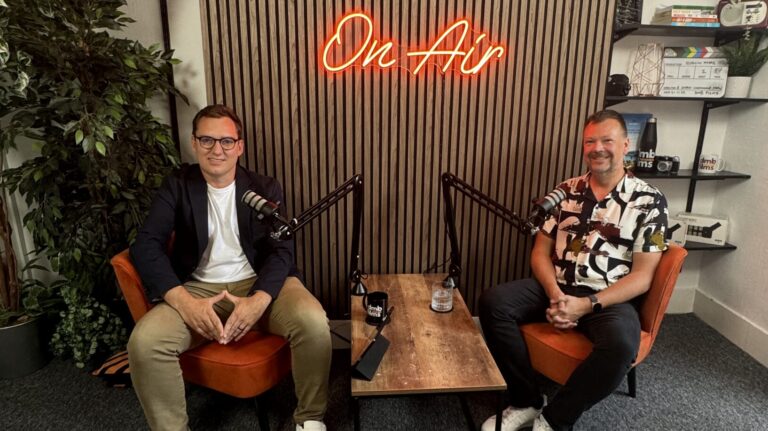Rethinking learning and development (L&D): Taking it beyond tick-box training
What does it really mean to learn? And more importantly, how can organisations make sure that learning sticks?
In Episode 2 of Reel Impact, we sat down with Learning & Development expert Peter Clark-Lewis, from Reimagine Learning, to explore these questions. His insights challenge the way many businesses think about training – moving away from quick fixes and one-off workshops to something deeper, more human, and far more effective.
Training vs. Learning
One of Peter’s key points is that too often, companies mistake training for learning.
Training is the event: a workshop, a course, a seminar.
Learning, however, is what happens afterwards, when new knowledge is put into practice, reflected on, and applied again in different contexts.
As Peter explains,
“If it doesn’t change behaviour, has it really been learning?”
Why most programmes fail
It’s a familiar story: big investment in training days, followed by little evidence of change. Peter puts this down to a focus on delivery over impact.
Tick-box training may satisfy compliance requirements, but it rarely shifts the needle in terms of skills, confidence, or business outcomes.
Real development, he argues, requires context so making the learning relevant to people’s actual day-to-day challenges.
The role of leaders
For learning to thrive, leadership has to play an active part.
That means more than just sending staff on courses. Leaders need to create a culture where experimentation, reflection, and application are encouraged.
“Learning is social; People learn best when they’re supported to try new things, when they feel safe to fail, and when leaders set the tone that development matters.”
Making learning stick
So, how can organisations move from training as a one-off event to learning as an embedded habit? Peter offers some practical answers:
-
Bring learning into the flow of work — make it part of everyday routines, not just something that happens in a classroom.
-
Connect learning to real problems — the closer it is to someone’s role, the more likely it will last.
-
Encourage reflection — space to pause and process can be just as important as the learning activity itself.
-
Lead by example — when leaders share their own development journey, it signals that learning is for everyone.
Why it matters
Ultimately, Peter reminds us that learning is about people, not programmes.
Organisations that get this right don’t just tick compliance boxes, they create environments where individuals grow, teams flourish, and businesses see real impact.
That’s what makes learning meaningful.
In short, effective learning and development (L&D) isn’t about delivering more courses, it’s about creating the conditions for lasting change.
🎧 Listen to the full conversation with Peter Clark-Lewis on Episode 2 of Reel Impact.
